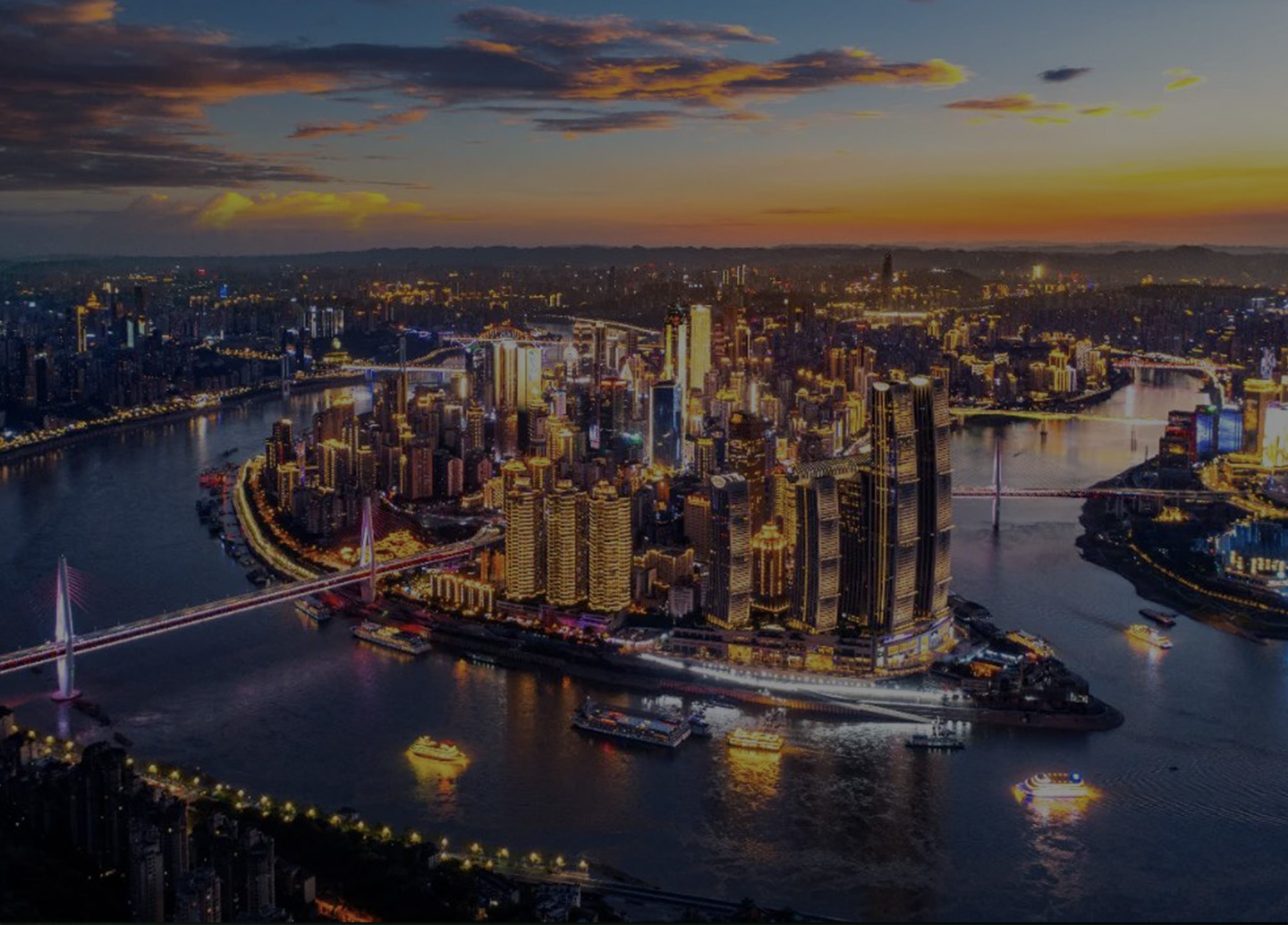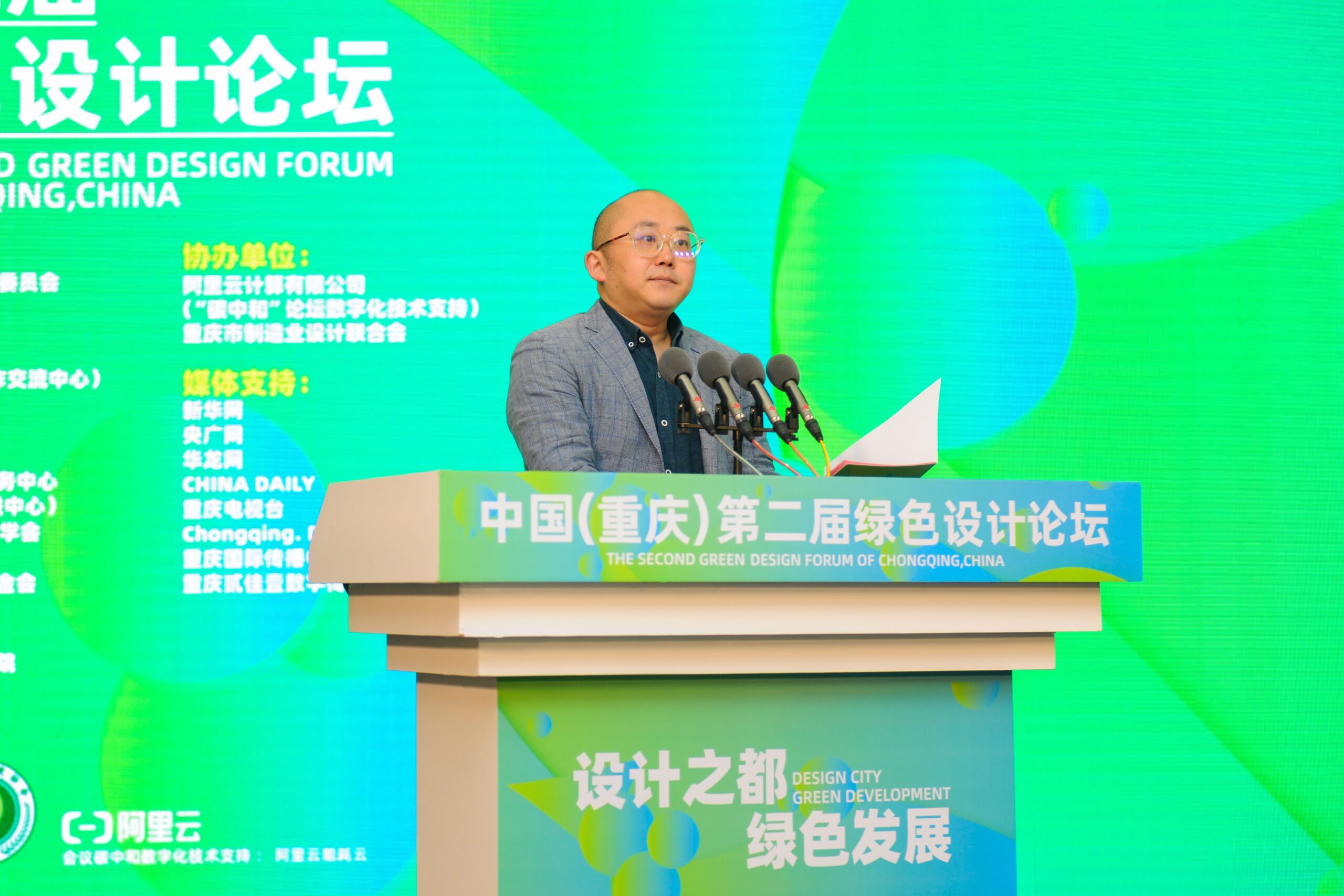Contact us
- Chongqing Industrial Design Promotion Center
- No. 1, Shangqingsi Road, Yuzhong District, Chongqing, People's Republic of China
- +86-23-60332626
- hi@chongqing.design

The Second Green Design Forum of Chongqing, China, was held on December 15. (Photo/Event organizer)
Chongqing – Southwest China’s Chongqing recently hosted the Second Green Design Forum on December 15. This coincided with the city being honored as a UNESCO Creative City of Design for 2023, highlighting its commitment to innovative urban design.
The forum’s agenda was centered around the incorporation of green design concepts, aiming to transform Chongqing into a model of a green, low-carbon international city. This initiative represents a significant leap forward in the city’s quest for high-quality development and opens a new chapter in its urban transformation journey.
A primary focus of the event was addressing the urgent challenges posed by climate change through green design solutions. The forum also highlighted the growing importance of cultivating international talent in this field, sparking engaging discussions and widespread interest.
A notable moment featured Jiang Jinchen, Deputy Dean of the Design Academy at Sichuan Fine Arts Institute (SFAI). Jiang emphasized the vital role of green design in fostering sustainable development.

Jiang Jinchen, the Deputy Dean of the Design Academy at Sichuan Fine Arts Institute (SFAI), delivered a speech at the forum. (Photo/Event organizer)
Mr. Jiang shared the institute’s trailblazing initiatives, including introducing specialized green design courses and establishing an institute dedicated to this field. This pioneering approach at SFAI has resulted in a comprehensive and integrated education system, ranging from undergraduate to doctoral levels, focusing on sustainability.
Jiang envisaged a future where the principles of green design would be deeply ingrained across a wide range of industries, thereby driving a collective movement towards environmental awareness and responsibility.
Xu Tong, a Fellow at the Cambridge Centre for Environment, Energy, and Natural Resource Governance, delivered a keynote speech titled “Urban Design – The Journey to Carbon Neutrality.”

Xu Tong, a Fellow at the Cambridge Centre for Environment, Energy, and Natural Resource Governance, delivered a speech at the forum. (Photo/Event organizer)
Mr. Xu detailed the outcomes of past UN climate change conferences and highlighted outstanding examples of worldwide green design initiatives. Xu brought attention to Masdar City’s pioneering methods in achieving a zero-carbon, zero-waste urban environment, emphasizing the integration of human experiences in architectural design. His advocacy extends to a comprehensive design process, taking into account concepts, materials, and their interaction with people.
Furthermore, Xu explored the intricacies of energy management, climate change, and environmental policies, emphasizing the necessity for China-specific regulatory frameworks for various business types.
Underscoring the urgency for businesses to shift their focus towards environmental stewardship, Xu Tong noted the increasing significance of environmental, social, and governance (ESG) factors in corporate strategies. This stance is in line with the worldwide movement for environmental conservation and ethical corporate governance.
Disclaimer: Except for original content and specific statements, the articles and images published on this website are sourced from the internet and major mainstream media, and the copyrights belong to their respective original authors. If you believe that the content infringes upon your rights, please contact us for removal.